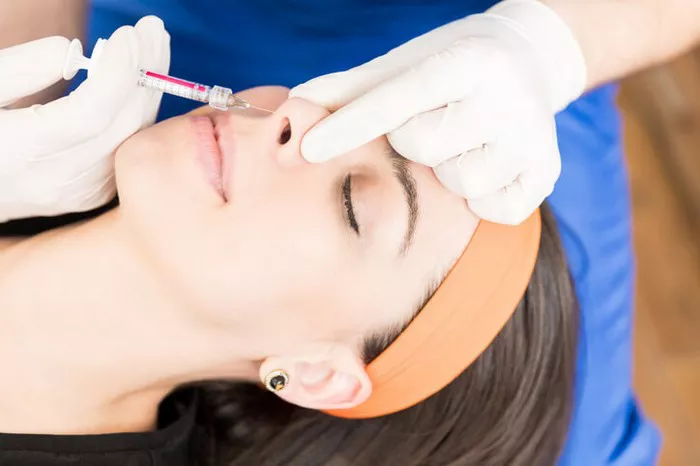Rhinoplasty, or nose surgery, is a common cosmetic procedure that can improve the appearance and function of the nose. After rhinoplasty, it is important to follow a strict recovery plan to ensure proper healing and minimize the risk of complications. One aspect of the recovery process that is often overlooked is diet. In this article, we will explore the diet to follow after rhinoplasty, including what foods to eat, what foods to avoid, and how to maintain a healthy diet during the recovery process.
Understanding the Recovery Process After Rhinoplasty
Before exploring the diet to follow after rhinoplasty, it is important to understand the recovery process. After surgery, a person will experience swelling, bruising, and discomfort in the treated area. It is important to follow the post-operative instructions provided by the surgeon, which may include wearing a splint or cast, taking pain medication, and avoiding certain activities.
The recovery process after rhinoplasty can take several weeks to several months, depending on the extent of the surgery and the individual’s overall health. During the recovery process, it is important to maintain a healthy diet to ensure proper healing and minimize the risk of complications.
Foods to Eat After Rhinoplasty
After rhinoplasty, it is important to eat a healthy and well-balanced diet to provide the body with the nutrients it needs to heal. Some of the foods to include in the diet after rhinoplasty include:
Protein-rich Foods
Protein is essential for tissue repair and can help speed up the healing process. Good sources of protein include lean meats, fish, eggs, beans, and lentils.
Fruits and Vegetables
Fruits and vegetables are rich in vitamins and antioxidants that can help boost the immune system and promote healing. Some of the best fruits and vegetables to include in the diet after rhinoplasty include berries, citrus fruits, leafy greens, and cruciferous vegetables.
Whole Grains
Whole grains, such as brown rice and quinoa, are rich in fiber and can help regulate digestion. They also provide the body with energy to support the healing process.
Healthy Fats
Healthy fats, such as those found in nuts, seeds, avocados, and fatty fish, can help reduce inflammation and promote healing.
Foods to Avoid After Rhinoplasty
There are several foods to avoid after rhinoplasty, as they can potentially cause complications or delay the healing process. Some of the foods to avoid after rhinoplasty include:
Spicy Foods
Spicy foods can cause inflammation and potentially delay the healing process. It is recommended to avoid spicy foods for at least the first week after surgery.
Salty Foods
Salty foods can cause water retention and potentially increase swelling. It is recommended to avoid salty foods for at least the first week after surgery.
Alcohol
Alcohol can interfere with the healing process and potentially cause complications. It is recommended to avoid alcohol for at least the first week after surgery.
Caffeine
Caffeine can dehydrate the body and potentially increase swelling. It is recommended to avoid caffeine for at least the first week after surgery.
Maintaining a Healthy Diet During Recovery
Maintaining a healthy diet during the recovery process after rhinoplasty can be challenging, especially if the person is experiencing discomfort or has limited mobility. However, there are several tips for maintaining a healthy diet during recovery, including:
Plan Ahead
Planning meals ahead of time can help ensure that the person is eating a healthy and well-balanced diet. It can also help minimize the need for cooking or food preparation during the recovery process.
Hydrate
Drinking plenty of water during the recovery process can help improve circulation and reduce swelling. It is important to stay hydrated and avoid alcohol and caffeine, which can dehydrate the body.
Eat Small, Frequent Meals
Eating small, frequent meals throughout the day can help maintain energy levels and prevent overeating. It can also help minimize discomfort or nausea that may occur after eating.
Use Supplements
In some cases, the surgeon may recommend using supplements, such as vitamin C or zinc, to help promote healing. It is important to consult with the surgeon before using any supplements.
Listen to Your Body
It is important to listen to the body during the recovery process. If a certain food or drink causes discomfort or nausea, it is important to avoid it and consult with the surgeon if necessary.
Conclusion
Maintaining a healthy diet during the recovery process after rhinoplasty is an important aspect of ensuring proper healing and minimizing the risk of complications. It is important to eat a well-balanced diet that includes protein-rich foods, fruits and vegetables, whole grains, and healthy fats. It is also important to avoid spicy and salty foods, alcohol, and caffeine during the recovery process. By following these guidelines and consulting with the surgeon if necessary, a person can safely and effectively recover from rhinoplasty.


